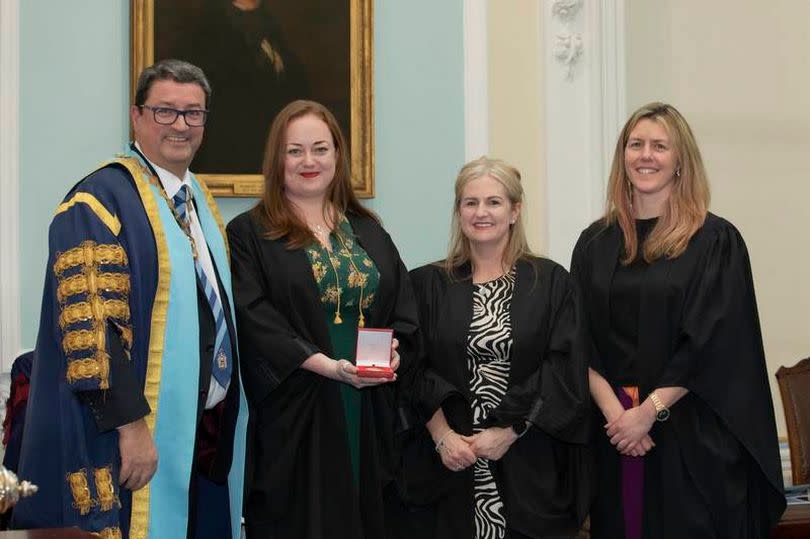Teesside NHS palliative care team receives national gong for patient care
A health team who care for people with life limiting illnesses, including end of life care, has been recognised with a national award for their continuous commitment to delivering high-quality patient care.
The specialist palliative care team at the University Hospital of North Tees, in Stockton, was honoured with this year’s Dundas Medal – an accolade for excellence in improving palliative care in hospitals. It was recognised for the extensive development and expansion of the Trust’s palliative care service, dating back to the Covid pandemic.
The team has expanded to a seven day service, offering specialist treatment and holistic support to patients with life limiting illnesses and their loved ones. This service offers specialist assessments, expert advice on controlling pain, and practical and emotional support around planning for the future and maintaining independence.
The team has also supported the introduction of a 24/7 telephone service called PalCall. This allows patients and carers to access palliative care advice upon discharge.
Donna Wakefield, consultant in palliative medicine, said: “To be awarded the Dundas Medal is such an honour for the team – to be recognised as an example of providing excellent palliative care. Everyone has worked really hard with so much enthusiasm and new ideas. The entire service has developed so much within only a few years and that really is down to the collaborative efforts of the whole team.”
In addition to actively improving the delivery of palliative and end of life care at the Trust, the team was also recognised for:
Support to patients and loved ones – including the introduction of an end of life facilitator, re-development of the Family’s Voice diary and launching ‘comfort bags’ to support families;
Supporting patients to be in their preferred place of death – a collaboration between Alice House Hospice and the Trust, so patients who would prefer to die outside of a hospital environment are transferred to end of life beds at the hospice;
Training staff – the team is the first in the region to deliver simulation training for nurses supporting dying patients;
Wellbeing support for staff – in a collaborative project with The Open University, the team developed award-winning creative writing wellbeing workshops for hospital staff;
Research – the team has contributed to various research publications and has been successfully granted funding to conduct further research in palliative care;
Quality improvement – a dedicated quality improvement group is looking at ways the service can be continuously improved for the benefit of patients, including the use of virtual reality for symptom control and bereavement care.
Zoe Booth, palliative and end of life care lead, said: “Our team is incredibly proud to have won this award. It goes to demonstrate our ongoing commitment to ensure that patients – and their families, friends or carers – receive the best possible palliative and end of life care.

About the Dundas Medal
The Dundas Medal is awarded by The Royal College of Surgeons of Edinburgh and Scottish Charity PATCH (Palliation and The Caring Hospital) to reflect work done to improve the provision of palliative care for patients in hospital.
The Dundas Medal is in commemoration of Dr Charles Dundas, a senior lecturer and consultant anaesthetist who died in 2014 from biliary carcinoma. He was never offered palliative care and spent his final months of life awaiting chemotherapy. His widow made a donation to PATCH to improve the provision of palliative care in hospitals.
The annual prize is awarded to a person or team in the UK as recognition of excellence in their efforts to improve the provision of palliative care in hospital, including excellence in innovation, research and education.
For breaking news in your area direct to your inbox every day, go here to sign up to our free newsletter

 Yahoo News
Yahoo News 
